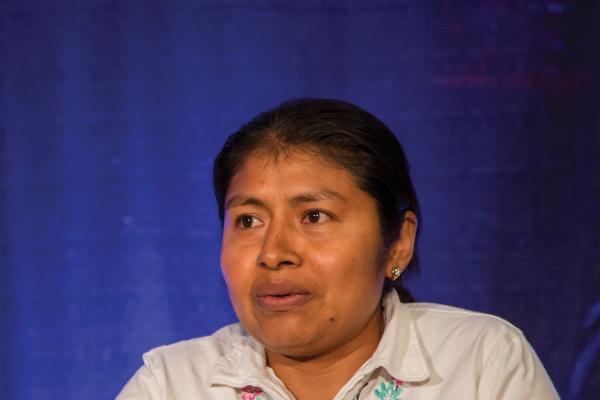Julia de la Cruz, originally from Mexico, is a farmworker, an organizer, and a member of the Coalition of Immokalee Workers (CIW). After forging agreements with 14 of the largest food retailers in the U.S.—including Walmart, McDonald’s, Trader Joe’s, and Chipotle—to establish labor standards and fair wages for tomato workers, CIW launched the Fair Food Program, a partnership among growers, farm workers, and retail food companies ensuring fair pay and humane working conditions on participating farms. This interview was conducted in English and Spanish, with Elena Stein, a faith organizer for Alliance for Fair Food, translating.
1. Why have farm workers in the U.S. continually faced unfair wages and inhumane working conditions? The body that was most responsible was not the growers who employ us, but actually the corporations at the very top of the supply chain who use their enormous purchasing power to demand artificially low costs of the produce we harvest. That demand results in growers cutting costs in the one place where they can: labor. And there you get the poverty and exploitation that we have experienced for decades.
2. Does it help farm workers if consumers stop purchasing products that are grown in bad working conditions? More and more we hear this idea of voting with your fork: this idea that consumers affect conditions based on how they use their dollar. But the truth is that if somebody chooses to refrain from buying a good, the impact really won’t be felt by corporations such that they’ll be forced to change their policies. But corporations will be impacted and forced to change their policies when a worker-led campaign forces them.
So we’d ask consumers to build consciousness by listening to farm workers and their experience and their analysis of the food system that nourishes each of us. The second thing we’d ask for is commitment—and that can mean a lot of things, but it definitely means getting to the street and protesting the corporations that have turned a blind eye to the abuses they have perpetuated.
Read the Full Article

